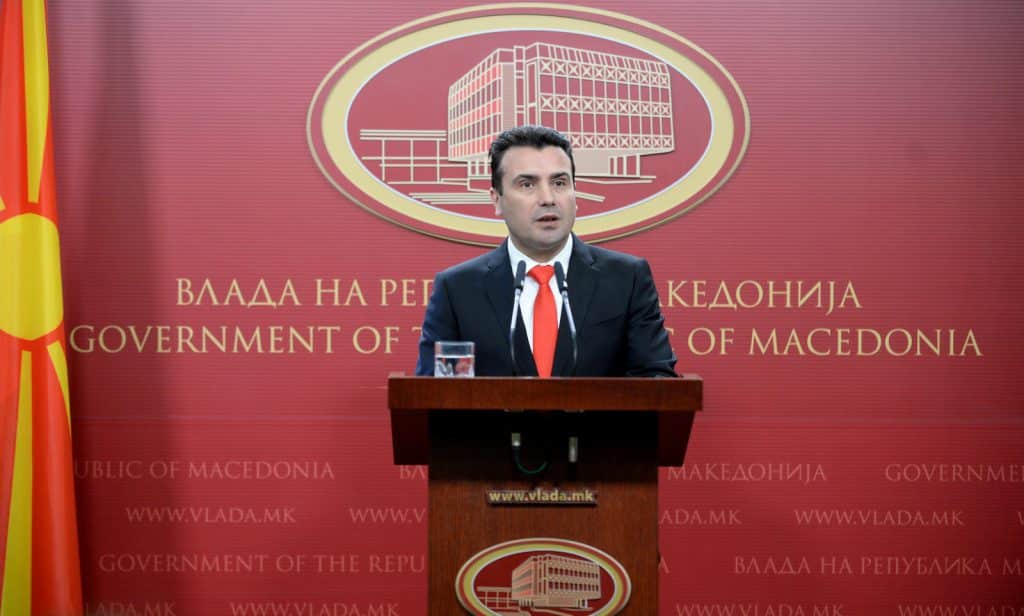This article previously appeared in the Volkskrant
The referendum next Sunday is a historic moment for Macedonia itself but a positive outcome also offers hope for democratic forces in south-eastern and eastern Europe, which are increasingly weighed down by authoritarian regimes, argues Danijel Tadic, south-eastern Europe expert at the Max van der Stoel Foundation.
Over the past year, Macedonia underwent an extreme makeover: from a repressive corrupt regime and poor relations with its neighbours to a democratic government implementing reforms to protect the rule of law and ensure media freedom. The new government of pro-European prime minister Zoran Zaev signed agreements with Greece and Bulgaria to pave the way for Euro-Atlantic integration.
Sunday will follow a historic test for democracy and the new government when Macedonia will vote on the agreement with Greece through a referendum. The official name of the country Former Yugoslav Republic of Macedonia (FYROM) would change to Republic of North Macedonia.
Id.
The name issue has raised the eyebrows of many an outsider: Greece has been blocking Macedonia's EU integration since 2004 on the grounds that it could lay a claim to the northern Greek province bearing the same name. However, the crux of the problem lies not in the country's technical name and unlikely territorial claims, but in how its language and inhabitants are called and thus the basis of Macedonians' identity. 'We were, are and always will be Macedonians,' Prime Minister Zaev called out to the crowd at a campaign rally. The agreement with Greece stipulates that the language will continue to be called Macedonian and the inhabitants Macedonians/citizens of the Republic of North Macedonia.
Against authoritarian trends
In 2016, Macedonia had its so-called colour revolution after leaked audio recordings about corruption in the government summit led to massive street protests. Under Western pressure, early elections were called and Zaev formed a coalition with Albanian parties. Expectations of the new government were sky-high but for now Zaev's team manages to live up to them. The minimum wage was raised, friendships were established with neighbouring countries, democratic institutions were strengthened and a political culture of openness and transparency was introduced.
By calling a referendum, Zaev is risking his short political career and the course he has set. Polls show that around 60 per cent will vote in favour of the name change but it is questionable whether the necessary 50 per cent turnout will be achieved. Merkel and other Western leaders have visited Skopje in recent weeks to support Zaev and encourage turnout. US Defence Secretary James Mattis said during his visit he had no doubt that Russia was backing groups seeking to thwart the referendum in order to stop Macedonia's NATO membership. In the campaign, the Macedonian government rightly framed the referendum as a choice between a better future under NATO and EU umbrella versus a future in the past with nationalism and repression.
The referendum is a historic moment for Macedonia itself, but a positive outcome also offers hope for democratic forces in south-eastern and eastern Europe that are increasingly weighed down by authoritarian regimes.
Photo: Flickr





